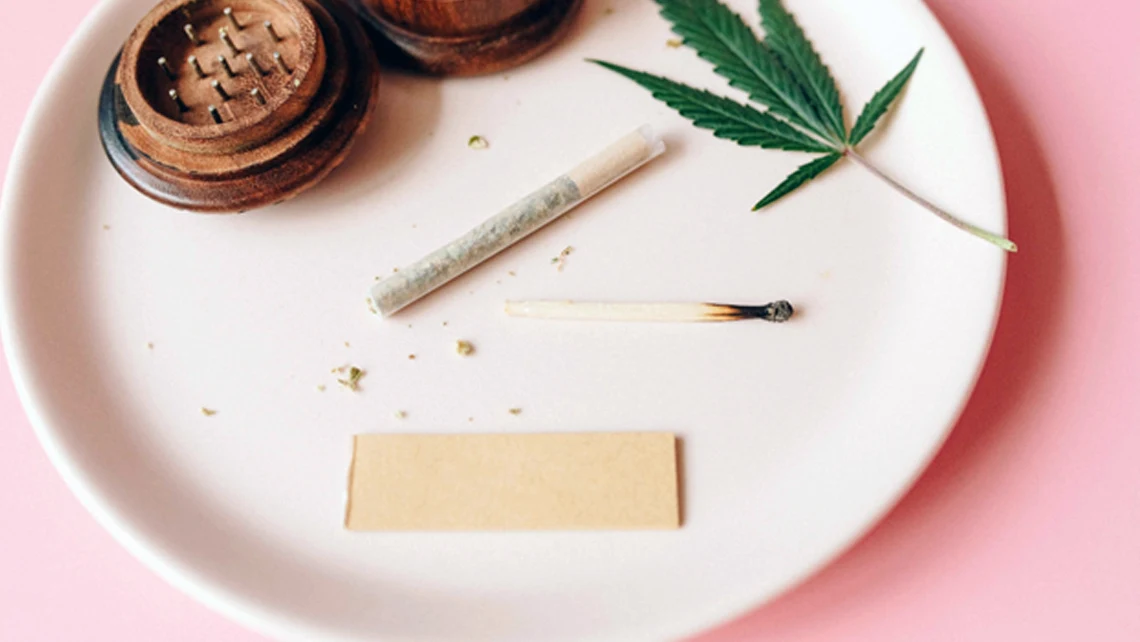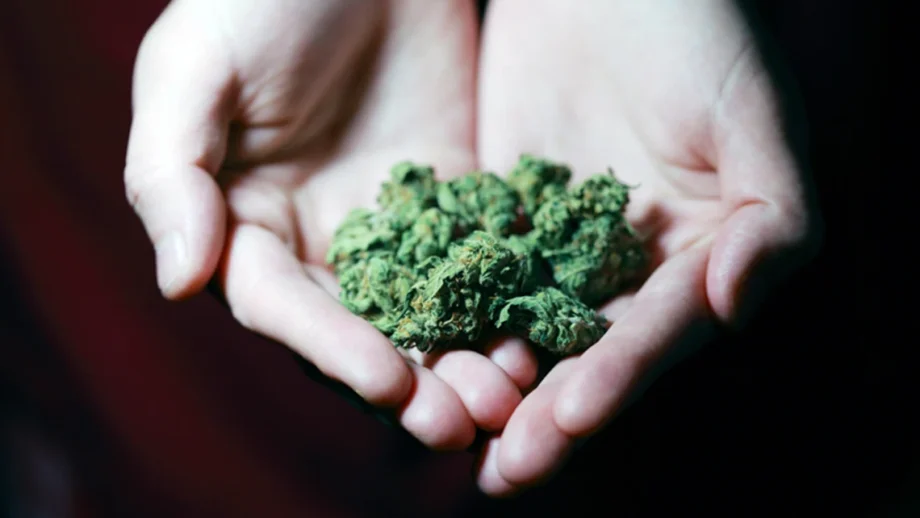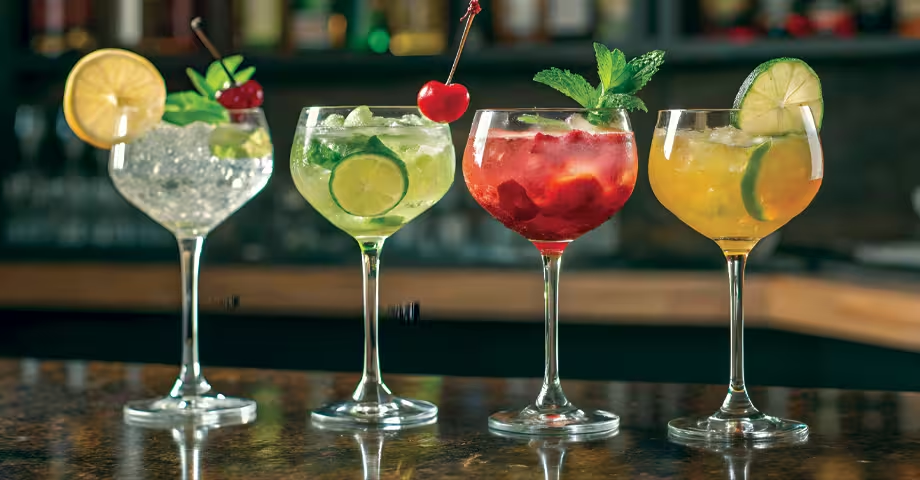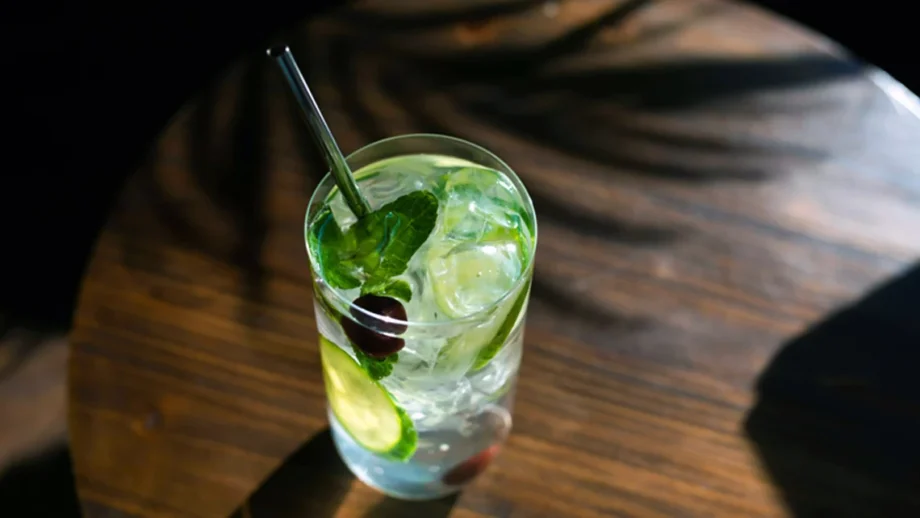You might know THC to be the most famous out of all the naturally occurring compounds in cannabis, but here’s the twist… It’s not just one thing.
This THC compound shows up in several forms. Some are gentle and grounding, others are powerful enough to shift your entire headspace. In this guide, you’ll learn how both non-psychoactive and psychoactive THC types work and why your experience with ingested cannabis depends on which type you’re actually consuming.
What Are The Different Types of THC?
Tetrahydrocannabinol, aka THC, is what you would call the “king” of cannabis components. It’s the dominant compound that’s responsible for weed’s signature psychoactive effects.
But did you know that it comes in different types? Within cannabis sativa and cannabis indica varieties, multiple kinds of THC compounds abound, each with its own chemistry, potency, and feel:
Delta-9 THC
When people say THC, Delta-9 is what they usually mean. This is the most commonly known and used THC in cannabis products, delivering the familiar high most people associate with weed. Because of its potency, it gave cannabis its strong, mind-shifting reputation.
Delta-8 THC
This one’s a close relative of Delta-9, but doesn’t come off as strong. It’s actually gentler, providing psychoactive effects that are milder and smoother. Because it has less intensity, it’s a favorite for functional cannabis goods.
THCA
Before THC became THC, it was THCA first. You can find THCA in raw cannabis as the non-psychoactive form of THC. Basically, THCA transforms into Delta-9 THC once exposed to heat. So when you smoke, boil, or cook cannabis, you activate THCA, unlocking its full psychoactive potential.
THCV
Cannabis is known to amplify appetite, but this type of THC suppresses it rather than boosts it. Because of this peculiar effect, it’s popularly referred to as “diet cannabinoid”. True to its moniker, it helps people lose pounds by staving off hunger and increasing their energy. Like THCA, it’s also non-psychoactive.
THCP
If you think Delta-9 is the most powerful and potent THC there is, you haven’t come across THCP yet. But to be fair, it’s actually harder to come across— so hard that it needs to be synthesized in a lab because it’s rarely naturally occurring. Much more intense than Delta-9, its psychoactive punch is around 30 times stronger.
THC-O
This is also another lab-derived version of THC that beats Delta-9 in potency. The intense high it produces is more psychedelic, heightening your sensations to the peak. Though 3 times stronger, its effects still kick in slower than Delta-9 THC.
Are All Types of THC Legal?
Unfortunately, no. We’re all aware that cannabis use is still limited. Not all countries and states allow weed within their borders, and those that do, put restrictions on the kinds of THC permitted and the ways they’re consumed.
Delta-9 THC in particular is tightly regulated because of its psychoactive power. In states where it has been federally approved, you can usually consume it for medical and recreational purposes. Other milder forms like Delta-8 THC and THCA are sometimes available if they qualify as hemp-derived THC products under the 0.3% threshold.
We’re hoping for the law to be more lenient on THC, but the contrary seems to be happening as states and federal agencies reconsider their stance. Nonetheless, what’s important is that many states still consider common THC types as legal for the time being.
Which Type of THC is Strongest?
You may believe Delta-9 THC dominates the battle of cannabis strength, but that assumption is wrong. It doesn’t even hold a candle to the power of the mighty THCP.
THCP or tetrahydrocannabiphorol binds to your body’s receptors 33 times more effectively than Delta-9, so you’ll get hit with a very strong high that puts the regular Delta-9 THC to shame. However, this kind of cannabis isn’t that widely available since it’s so rare that it needs to be chemically synthesized for production.
THC-O comes in second with thrice the strength of Delta-9. If THCP is rarely found in cannabis plants, THC-O doesn’t occur naturally at all in cannabis. It’s semi-synthetic, the lab child of Delta-9 and Delta-8 mixed with acetic anhydride. Despite being significantly weaker than THCP, it still has its own potent psychoactive effects.
Don’t go readily hunting for these two THC types, though, because the strongest doesn’t always mean the best. Each THC compound interacts with your body in unique ways, and the right choice depends on the experience you’re seeking and your tolerance, of course.
Is THCA The Same as THC?
Yes somehow, but mostly no. Yes in the sense that THCA is the precursor to THC. No because THC has a different effect, chemistry, and potency than THCA.
To explain this further, let’s discuss what sets the two apart from each other. If you’re juicing raw cannabis leaves, you’re getting the mild THCA. If you’re lighting up or baking edibles, you’re taking in THC. They’re fundamentally the same thing until heat enters the equation.
THCA is the cannabinoid present when you harvest the cannabis plant. It’s what THC is without the mind-muddling component. It doesn’t create the “high” people always connect with consuming weed because of an extra carboxyl group in its structure.
THC, on the other hand, is the evolved version of THCA. It only exists when you heat THCA. The heat “activates” it, shedding the extra carboxyl group in a process called decarboxylation, which finally brings out weed’s psychoactive properties.
Aside from its psychoactive tendencies, THC is also better at relieving pain, sparking appetite, and elevating mood. Meanwhile, THCA works for easing inflammation, supporting neuroprotection, and providing therapeutic benefits without altering your headspace. Same plant, different experience.
THC vs CBD Comparisons
THC and CBD are both cannabinoids existing within the cannabis plant. However, their similarities end there.
THC is the primary compound that makes weed psychoactive. It binds to the CB1 receptors in your brain to produce euphoria, altered perception, and the familiar “high”.
On the contrary, CBD is non-psychoactive. It still affects the clarity of your thoughts and the state of your mood and energy, but in a completely good and harmless way. It doesn’t override your control and influence your mind. In fact, it even counteracts and balances THC to moderate the weed’s impact on your system.
Their accessibility differs as well. Like all psychoactive components, THC is tightly regulated because too much of it can derail a person’s capacity to think and act properly. CBD doesn’t share these restrictions and is widely available for its anti-inflammatory, calming, and seizure-reducing properties.
Is Delta-8 Stronger Than Delta-9?
No. Intensity-wise, Delta-9 THC is the more powerful contender if pitted against Delta-8. These two are both psychoactive, but Delta-8 THC is milder and mellower, meant to be a softer alternative to Delta-9.
Delta-9’s effects are more potent and immediate because this THC type weaves itself directly to CB1 receptors in the brain. Delta-9 is also abundant in cannabis sativa and indica strains, so its quantity multiplies its strength.
Meanwhile, Delta-8 doesn’t naturally occur as much in cannabis plants, so it’s often synthesized from hemp-derived CBD. Its low presence and low potency allow it to be longer-lasting and less jarring than Delta-9.
Though different in intensity, Delta-8 and Delta-9 still share common side effects like dry mouth or increased appetite. Delta-9 is for you if you want pronounced euphoria and a hard-hitting high. But if you just want to relax and bask in a manageable, mindful bliss, then choose Delta-8 even if it’s the weaker option.
Differences Among Delta-8, Delta-9, and Delta-10
You may have heard of the three Delta THC types: Delta-8, Delta-9, and Delta-10. Though they have “Delta” in common, don’t be fooled because they aren’t the same.
Let’s start with Delta-9 because this is what comes to your mind when you think of weed. It’s the main psychoactive factor of cannabis and provides that potent high we expect from consuming cannabis products.
Delta-8 is its milder version. This THC type is still psychoactive yet the impact is less, making it more functional than recreational. It offers a subtler and more relaxing effect if you’re in for a gentle vibe.
Delta-10 THC is the weakest of the three. Regardless of its very low potency, it’s uplifting and energizing, reminiscent of a sativa strain, though much softer.
Both Delta-10 and Delta-8 don’t engage your CB1 receptors that much, but they may activate CB2 for anti-inflammatory or immune-supportive benefits. Both are also scarce in natural cannabis, so they’re usually synthesized from hemp-derived CBD products. Delta-9, on the other hand, abounds in both cannabis sativa and cannabis indica strains, primarily targeting your CB1 receptors for that punch of euphoria that leaves you craving for more.

How Can Consumers Decide Which Type of THC is Best for Them?
Exploring your THC options allows you to tailor your cannabis experience according to your lifestyle, mood, and personal goals. Here’s a thoughtful approach to selecting which one is the perfect fit for you:
Consider your tolerance level
Only pick the THC type you can handle. Beginners or those with low THC tolerance may prefer the mild Delta-8 or the non-psychoactive THCA, while seasoned users may choose the regular Delta-9 or the powerful THCP. Whichever it may be for you, always be aware of your limits.
Determine your desired effects
Different THC types can make you feel different ways. If you have a specific goal for taking cannabis products or a sensation you want to experience, keep that in mind when making your choice.
Do you want a strong psychoactive high or a soft and subtle lift? Are you leaning on weed for focus, energy, or a mood boost? Your purpose can narrow down your options.
Research product types
THC comes in various products, and the form it takes influences its onset time and duration.
Edibles such as cannabis gummies and THC flowers take the longest to kick in because you have to digest them first. Since their effects are unpredictable depending on how your body processes weed, you may feel an intense high or nothing at all. Vapes and joints don’t take as long and their impact is the strongest. Cannabis drinks can be mild or potent depending on the THC dosage in them, but you’ll feel them the fastest due to nano-emulsification.
Check legality
Not all THC types are federally approved, so look into the THC you want to get. Delta-9 may be the most incorporated in products, but it’s also heavily regulated because of its psychoactive tendencies. Hemp-derived options like THCA and Delta-8 THC are also broadly available, but they’re less restricted since they’re not or just barely psychoactive, which makes them more accessible.
Consult with professionals
If you want to use THC for medical or therapeutic purposes, then you should talk with your doctor or healthcare provider to get guidance on which THC type will work best for your condition. Having a professional assess your needs helps you maintain safe and effective THC consumption.
Consumer Guide to Buying THC Products
So you have decided on the type of THC you want to eat, drink, or smoke. The next challenge is selecting the product with that kind of THC in it and enjoying the buzz in your free time or when you need a blissful boost. Here’s our practical guide for smart THC shopping:
Familiarize yourself with THC types
Never get into the cannabis trend blind. Learn as much as you can about the different THC types and how they can possibly affect the mind and body. This lets you make responsible choices and prepare yourself for the experience.
Choose trusted sellers
You don’t want to buy your THC products from some shady shop or a random guy in a hoodie. Look for brands with transparent practices, third-party lab testing, and clear ingredient lists. If you want to grab some cannabis goods that are sure to be safe and reliable, visit the Find Wunder online store.
Check the THC dosage
Read the labels of cannabis products to see the amount of THC they contain. Some products are high in THC, while others are microdosed. This allows you to stay within your limits if you have a low tolerance for THC.
Verify legal status
Only purchase products that comply with local and federal laws. You wouldn’t want to get yourself in trouble because you possess cannabis items that are illegal. Always be compliant when buying and consuming anything with THC.
Read customer reviews
Gauge effectiveness and reliability through user testimonials. These indicate what you can expect from a cannabis product, so your decision is guided and backed by people who have tried the goods before you.
If an item has high ratings and an abundance of five-star reviews, it means that the quality is good, the product is safe to consume, and you’ll likely enjoy it just like everyone else. On the flip side, negative reviews and low ratings tell you that the quality is questionable and the product isn’t worth trying.
Buying THC products doesn’t have to be overwhelming. You just need a clear approach and the right knowledge. When in doubt, you can always choose our Wunder drinks and gummies to satisfy your THC cravings.



